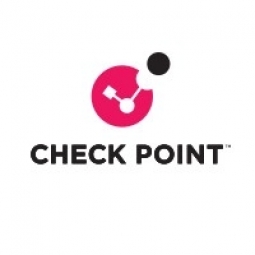Securing Confidential Data: Michael Page International's Deployment of Check Point Data Security Products

Technology Category
- Cybersecurity & Privacy - Application Security
- Platform as a Service (PaaS) - Device Management Platforms
Applicable Industries
- Electronics
- National Security & Defense
Use Cases
- Cybersecurity
- Inventory Management
Services
- Cybersecurity Services
About The Customer
Michael Page International is a world-leading professional recruitment agency. Founded in 1976, the company has grown to employ more than 5,000 people in 166 offices across 28 countries worldwide. Michael Page sources permanent, contract temp, and interim employees for clients ranging from global multi-nationals to small and medium enterprises (SMEs). As a recruitment agency, it holds a significant amount of confidential data, making data security a top priority. The company operates a large network of PCs and laptops across its offices, which are used by directors, senior management, and IT staff.
The Challenge
Michael Page International, a leading professional recruitment agency, faced a significant challenge in securing its confidential data across office-based PCs and a fleet of 50 laptops used by directors, senior management, and IT staff. The company, with around 300 PCs in 65 offices across the UK, needed a solution that could protect against data loss or theft, and could be easily deployed and controlled across a distributed network. The need for confidentiality was paramount in their business, as their clients and applicants depended on it. The challenge was to find a solution that would not only secure the data but also operate automatically without disrupting the end user, and reduce the burden on IT support staff.
The Solution
After evaluating possible solutions, Michael Page chose Check Point Full Disk Encryption and Media Encryption products. Check Point Full Disk Encryption provides automatic real-time encryption of a PC’s entire hard drive, which can be configured to meet the customer’s needs. Pre-boot authentication increases security by requiring a username and password before the operating system loads. Check Point Media Encryption was chosen for its full control over USB ports, devices, and media drives, its centralized management, and ability to provide complete audits of device usage. It prevents unauthorized copying of sensitive data by combining port and device management, content filtering, and centralized auditing with robust media encryption. These products offer automated, industry-proven solutions that deploy quickly and easily to protect all sensitive data, and are scalable to meet the needs of any sized company.
Operational Impact
Quantitative Benefit

Case Study missing?
Start adding your own!
Register with your work email and create a new case study profile for your business.
Related Case Studies.

Case Study
Remote Temperature Monitoring of Perishable Goods Saves Money
RMONI was facing temperature monitoring challenges in a cold chain business. A cold chain must be established and maintained to ensure goods have been properly refrigerated during every step of the process, making temperature monitoring a critical business function. Manual registration practice can be very costly, labor intensive and prone to mistakes.

Case Study
Predictive maintenance in Schneider Electric
Schneider Electric Le Vaudreuil factory in France is recognized by the World Economic Forum as one of the world’s top nine most advanced “lighthouse” sites, applying Fourth Industrial Revolution technologies at large scale. It was experiencing machine-health and unplanned downtime issues on a critical machine within their manufacturing process. They were looking for a solution that could easily leverage existing machine data feeds, be used by machine operators without requiring complex setup or extensive training, and with a fast return on investment.

Case Study
Cloud Solution for Energy Management Platform-Schneider Electric
Schneider Electric required a cloud solution for its energy management platform to manage high computational operations, which were essential for catering to client requirements. As the business involves storage and analysis of huge amounts of data, the company also needed a convenient and scalable storage solution to facilitate operations efficiently.

Case Study
Leveraging the IoT to Gain a Competitive Edge in International Competition
Many large manufacturers in and outside Japan are competing for larger market share in the same space, expecting a growing demand for projectors in the areas of entertainment, which requires glamor and strong visual performance as well as digital signage that can attract people’s attention. “It is becoming more and more difficult to differentiate ourselves with stand-alone hardware products,” says Kazuyuki Kitagawa, Director of Service & Support at Panasonic AVC Networks. “In order for Panasonic to grow market share and overall business, it is essential for us to develop solutions that deliver significant added value.” Panasonic believes projection failure and quality deterioration should never happen. This is what and has driven them to make their projectors IoT-enabled. More specifically, Panasonic has developed a system that collects data from projectors, visualizes detailed operational statuses, and predicts issues and address them before failure occurs. Their projectors are embedded with a variety of sensors that measure power supply, voltage, video input/ output signals, intake/exhaust air temperatures, cooling fan operations, and light bulb operating time. These sensors have been used to make the projector more intelligent, automatically suspending operation when the temperature rises excessively, and automatically switching light bulbs. Although this was a great first step, Panasonic projectors were still not equipped with any capability to send the data over a network.








